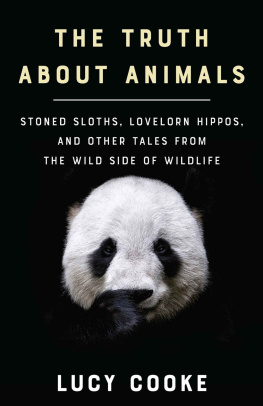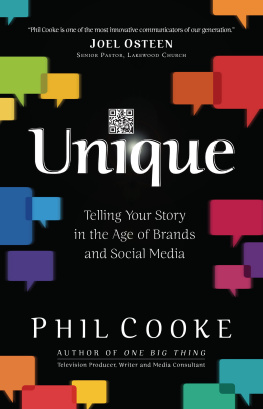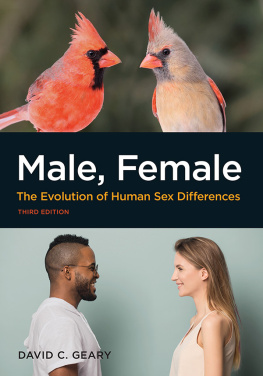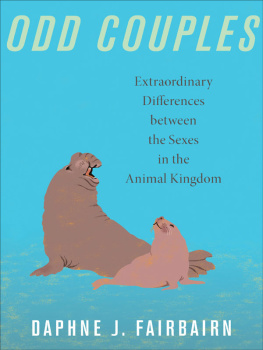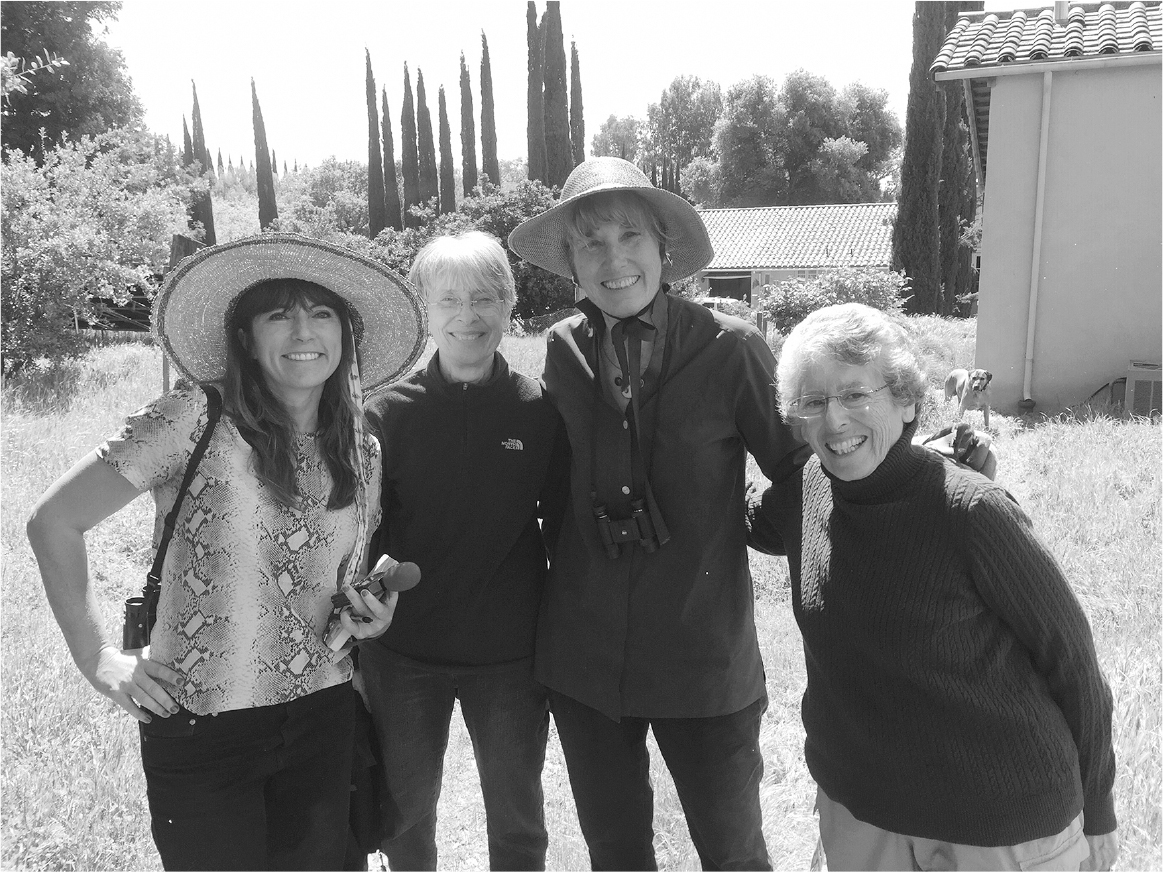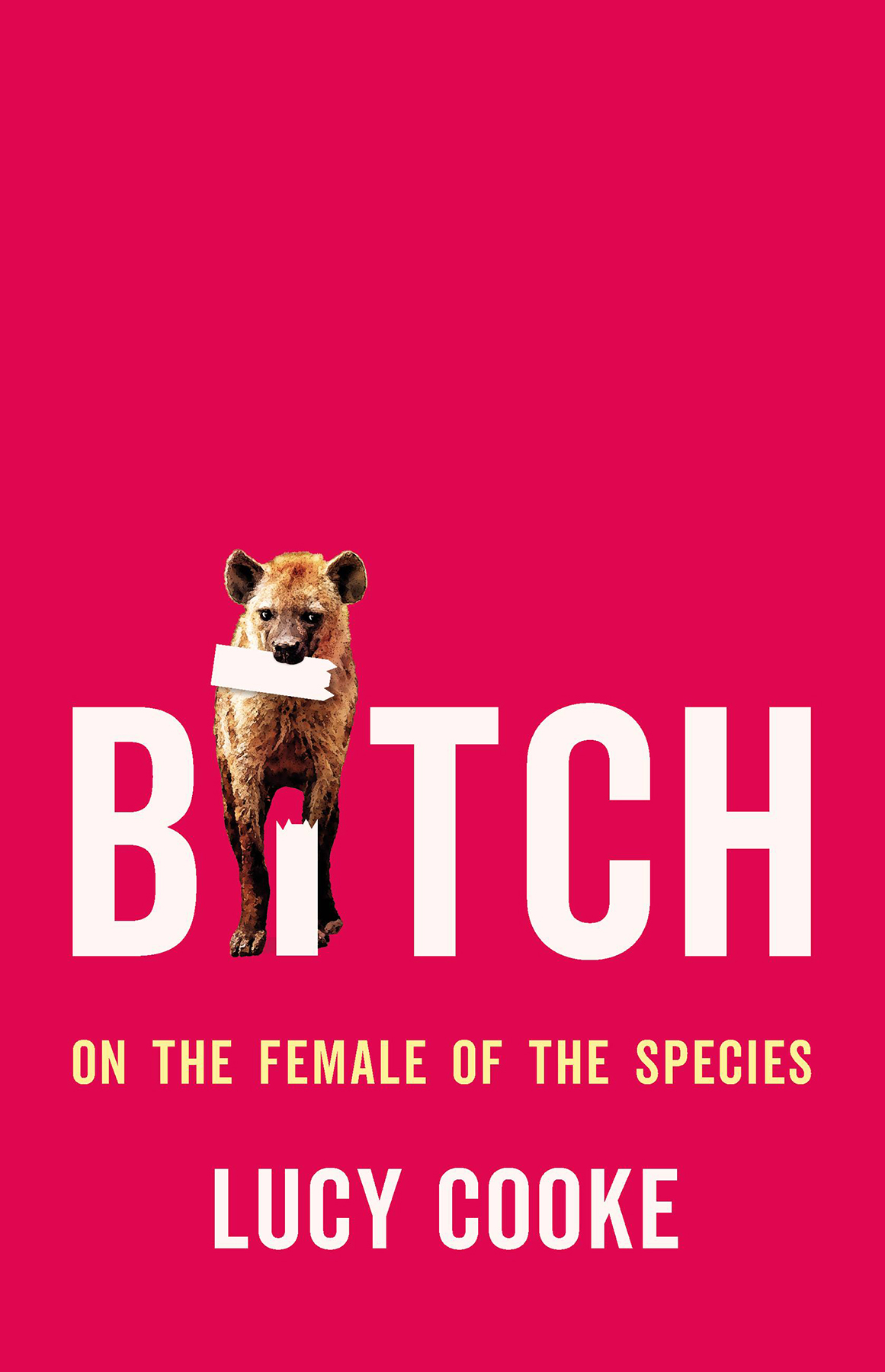
Copyright 2022 by Lucy Cooke
Cover design by Ann Kirchner
Cover image iStock.com/Elise Morris
Cover copyright 2022 by Hachette Book Group, Inc.
Hachette Book Group supports the right to free expression and the value of copyright. The purpose of copyright is to encourage writers and artists to produce the creative works that enrich our culture.
The scanning, uploading, and distribution of this book without permission is a theft of the authors intellectual property. If you would like permission to use material from the book (other than for review purposes), please contact permissions@hbgusa.com. Thank you for your support of the authors rights.
Basic Books
Hachette Book Group
1290 Avenue of the Americas, New York, NY 10104
www.basicbooks.com
First published in Great Britain in 2022 by Doubleday an imprint of Transworld Publishers
First US Edition: June 2022
Published by Basic Books, an imprint of Perseus Books, LLC, a subsidiary of Hachette Book Group, Inc. The Basic Books name and logo is a trademark of the Hachette Book Group.
The Hachette Speakers Bureau provides a wide range of authors for speaking events. To find out more, go to www.hachettespeakersbureau.com or call (866) 376-6591.
The publisher is not responsible for websites (or their content) that are not owned by the publisher.
Illustration from Malefemale, femalefemale and malemale sexual behaviour in the stumptail monkey, with special attention to the female orgasm in Archives of Sexual Behaviour, reproduced by permission.
Typeset in 11.45/15pt Sabon MT Pro by Jouve (UK), Milton Keynes.
Library of Congress Control Number: 2021947838
ISBNs: 9781541674899 (hardcover), 9781541674905 (ebook)
E3-20220510-JV-NF-ORI
The Truth About Animals
To all the bitches in my life
Thank you for the love and inspiration
Language evolves rapidly, and there is currently much conversation about the conflation of sex and gender terms. It is critical to use these terms appropriately and not to confuse them. Most scientists agree that non-human animals do not have gender. In this book, the terms female and male refer to an animals biological sex. I do engage in anthropomorphizing, to an extent. Sometimes this is because these were the historical terms used. For example, I may refer to an animals genitalia as being masculinized or a brain being feminized as this was the original scientific description. Such gendered terms neednt and shouldnt be used to describe animals sex characteristics and behaviours in scholarly realms today. I also use gendered terms such as mother and father to describe animals, because these are the terms used by the scientists in question and most of my audience will understand what or who I refer to with these terms for instance, mother may mean the egg-producing parent of an individual animal. At other times, I have used anthropomorphic terms such as femme fatale, queen, lesbian, sister, lady and bitch for storytelling purposes, and readers neednt choose to replicate these labels in their academic work. I recognize that this anthropomorphizing can, unintentionally, have gendered implications. This book intends to demonstrate that sex is wildly variable and that gendered ideas based on assumptions of binary sex are nonsense. It is my sincerest hope that this intent has been clearly communicated.
Lucy Cooke, far left, with (from left to right) Mary Jane West-Eberhard, Sarah Blaffer Hrdy and Jeanne Altmann
Studying zoology made me feel like a sad misfit. Not because I loved spiders, enjoyed cutting up dead things Id found by the side of the road or would gladly root around in animal faeces for clues as to what their owner had eaten. All my fellow students shared the same curious kinks, so there was no shame there. No, the source of my disquiet was my sex. Being female meant just one thing: I was a loser.
, and the fundamental evolutionary basis for the exploitation is the fact that eggs are larger than sperms, wrote my college tutor Richard Dawkins in his bestselling evolutionary bible, The Selfish Gene.
According to zoological law, we egg-makers had been betrayed by our bulky gametes. By investing our genetic legacy in a few nutrient-rich ova, rather than millions of mobile sperm, our forebears had pulled the short straw in the primeval lottery of life. Now we were doomed to play second fiddle to the sperm-shooters for all eternity; a feminine footnote to the macho main event.
I was taught that this apparently trivial disparity in our sex cells laid cast-iron biological foundations for sexual inequality.
Male animals led swashbuckling lives of thrusting agency. They fought one another over leadership or possession of females. They shagged around indiscriminately, propelled by a biological imperative to spread their seed far and wide. And they were socially dominant; where males led, females meekly followed. A females role was as selfless mother, naturally; as such, maternal efforts were deemed all alike: we had zero competitive edge. Sex was a duty rather than a drive.
And as far as evolution was concerned it was males who drove the bus of change. We females could hop on for a ride thanks to shared DNA, as long as we promised to keep nice and quiet.
As an egg-making student of evolution, I couldnt see my reflection in this fifties sitcom of sex roles. Was I some kind of female aberration?
The answer, thankfully, is no.
A sexist mythology has been baked into biology, and it distorts the way we perceive female animals. In the natural world female form and role varies wildly to encompass a fascinating spectrum of anatomies and behaviours. Yes, the doting mother is among them, but so is the jacana bird that abandons her eggs and leaves them to a harem of cuckolded males to raise. Females can be faithful, but only 7 per cent of species are sexually monogamous, which leaves a lot of philandering females seeking sex with multiple partners. Not all animal societies are dominated by males by any means; alpha females have evolved across a variety of classes and their authority ranges from benevolent (bonobos) to brutal (bees). Females can compete with each other as viciously as males: topi antelope engage in fierce battles with huge horns for access to the best males, and meerkat matriarchs are the most murderous mammals on the planet, killing their competitors babies and suppressing their reproduction. Then there are the femme fatales: cannibalistic female spiders that consume their lovers as post- or even pre-coital snacks and lesbian lizards that have lost the need for males altogether and reproduce solely by cloning.
In the last few decades there has been a revolution in our understanding of what it means to be female. This book is about that revolution. In it, I will introduce you to a riotous cast of remarkable female animals, and the scientists that study them, who together have redefined not just the female of the species, but the very forces that shape evolution.
To understand how we arrived at this cockeyed view of the natural world, we have to head back in time to Victorian England to meet my scientific idol: Charles Darwin. Darwins theory of evolution by natural selection explained how the rich variety of life is descended from a common ancestor. Organisms that are more adapted to their environment are more likely to survive and pass on the genes that aided their success. This process causes species to change and diverge over time. Often misquoted as survival of the fittest a term coined by the philosopher Herbert Spencer and into the fifth edition of


